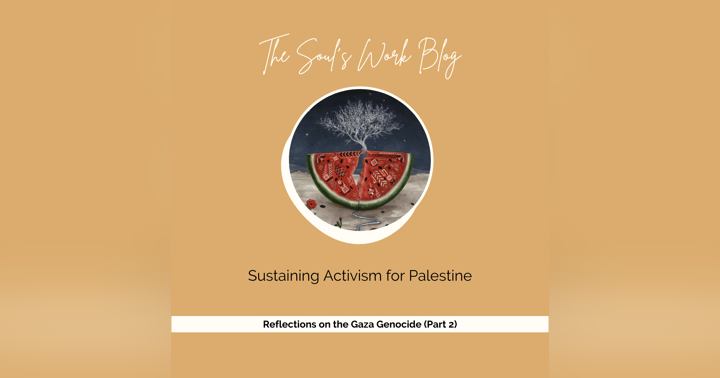In a Flash of Light

Content Warning: In this post, I discuss some of the impacts I've experienced from early childhood trauma. Please take care while you read.
I'm in week 1 of the NeuroAffective Touch®: A Somatic Toolkit for Healing Emotional & Relational Trauma online course (with Dr. Aline La Pierre), and I can already sense that it's going to impact me for years to come.
We're looking at very early trauma, which of course can bring up so much ... stuff. During our first live training, as we watched slides of animals bonding and being nurtured, I felt a longing for something that felt deeply missing.
But one of the things that really struck me in perhaps a more hopeful way was learning about the zinc spark.
What's the zinc spark? Well, when fertilization occurs, a flash of light is emitted in that moment of conception. The light then moves through the cell and "awakens our being-ness," as Dr. Aline said.
In more scientific terms: "A zinc spark is essentially an explosion of zinc from an egg that can be seen under a microscope using a fluorescent probe. The spark occurs when an egg is fertilized and its cortical vesicles are released, flooding the area around the egg with zinc." (Source)
I'm not a mother, nor do I have any desire to become one, but watching that exact moment of fertilization in the video below (see at 9:00) was pretty breathtaking:
Zinc Sparks Control Reproduction: Thomas V. O'Halloran, PhD at TEDxNorthwesternU (YouTube)
As Dr. Aline said, "This image of our conception is missing for people." Of course, we won't have an explicit memory of the moment we "sparked." But imagining that my birth created such an explosion of light evoked a certain feeling or knowing for me ...
That I did matter. That I came into existence. That I existed. That I exist.
That deep sense of "I exist" (“I am here,” “I have a right to be here,” “I have a right to express myself") can be missing for people who experience very early trauma.
First learning this from the book Healing Developmental Trauma (by Laurence Heller and Aline La Pierre) was like finding one of the last missing puzzle pieces in my healing journey. Understanding that the outcome of early trauma can be "a relentless, nameless dread, a continuous sense of impending doom that never resolves" demystified so much.
For me, it's not that I consciously think: "I don't exist." Rather, I've lived with a very deep sense of "I don't belong" (in my family, my social circles, on this planet) for much of my life. And I've continuously experienced what I call my "apathy for life" (I guess I did name the nameless dread after all), which feels like a heavy weight, a tiredness of living, and the running narrative of "I have to keep doing this?" (without ever having any accompanying thoughts of self-harm).
It doesn't get evoked for me all the time, but I believe these kinds of things can become our norm, so much so that they remain hanging over our heads like a gloomy cloud. We may not always look up and notice it with our eyes, but its presence continues to dim our experience of life a notch (or several notches).
Now knowing where this all comes from has helped me to slowly chip away at the self-image of unbelonging I had developed over so many years. Learning how to reconnect with my Self on a somatic (body) level, has helped me access the place where my life force (the energy that fuels our aliveness, sense of self, etc.) resides.
And of course, learning how I might connect with others in a way that doesn't continue reinforcing trauma patterns, but rather adds to my growing sense of "I have a right to be here," is essential. Because healing from relational trauma does require healing in relationship.
It's such a work in progress, but every little step counts.
We were encouraged to call up the zinc spark in our mind’s eye and imagine that this light is still within us. I still see it. I sense it. It feels like a glimmer of hope that even the most deeply ingrained beliefs about ourselves can be transformed.

